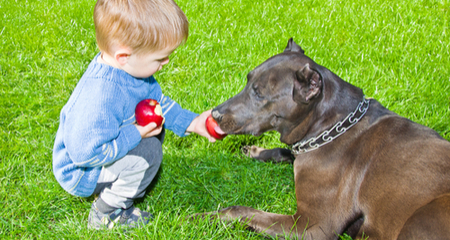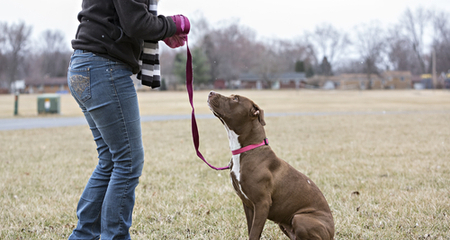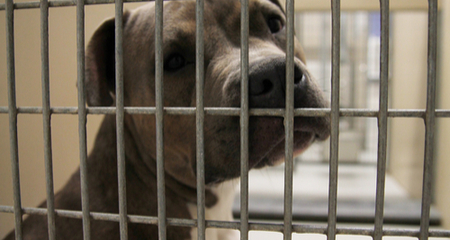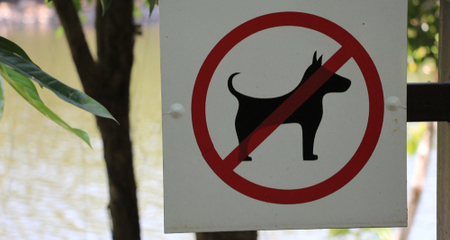
Pit Bulls get a bad rap, but in reality, they’re some of the best pets around.
“This is a very misunderstood breed,” says Maria Tullo, adoption coordinator of the American Pit Bull Foundation, a nonprofit advocacy group and rescue based in Charlotte, North Carolina. “Once you own a Pit Bull, I highly doubt that you’ll ever want another breed.”
If you’re considering adopting a “Pittie,” as they’re affectionately known, you’re in good company: Pit Bulls are the second most adopted dog in the United States, according to the ASPCA. Here are five things you should know about them.
Pit Bull Isn’t Technically a Breed

The American Kennel Club does not recognize the Pit Bull as a specific breed. Instead, it’s a term that’s generally used to describe smooth-coated, “bully-type” dogs. Recognized pedigreed breeds include the American Staffordshire Terrier, the Staffordshire Bull Terrier and the Bull Terrier.
They’re Great Family Dogs

Some Pit Bulls arrive to shelters with difficult pasts. However, if you’re looking for a great family dog, don’t skip over these misunderstood pups. While every dog should be behavior tested before being adopted by a family with young children, Pit Bulls are frequently a great match.
“Just because they’re a Pit Bull doesn’t mean that they are aggressive,” says Dr. Ashley Rossman, a veterinarian at Glen Oak Dog & Cat Hospital in Glenview, Illinois. “They could be a delightful addition to your family.”
If your family is active, even better. “They love to play,” says Tullo. “If you’re an outdoorsy person, they’re the kind of dog that loves to go on hikes.”
They’re Highly Trainable

Looking for a smart pet? Look no further—Pit Bulls are wonderful students. “A lot of them are very food motivated, which makes them easy to train,” says Rossman.
Pit Bulls are trained to be K9 officers, as well as service and therapy dogs. Tullo’s organization has a pilot program in the works that trains Pit Bull puppies to assist veterans suffering from post-traumatic stress disorder.
They’re One of the Most Euthanized Breeds

If you’re thinking of adding a Pit Bull to your family, it’s always a good idea to adopt instead of shop. Sadly, Pit Bulls have one of the highest euthanasia rates among dogs in shelters, according to the ASPCA.
In addition to saving a life, you’ll likely find a better match at a shelter than at a breeder. Shelter staffers are dedicated to finding permanent homes for their dogs and will work with you to select the best dog for your lifestyle and experience level.
Pit Bulls Aren’t Welcome Everywhere

Pit Bulls are frequently the target of breed-specific bans. Hundreds of U.S. cities have bans or restrictions on the dogs, as do other countries. Laws vary widely, but in some cases you’ll have to move or surrender your pet, so it’s important to do your research before adopting or relocating.
Fortunately, organizations including the AKC, the National Canine Research Council and the American Pit Bull Foundation are fighting against such legislation.